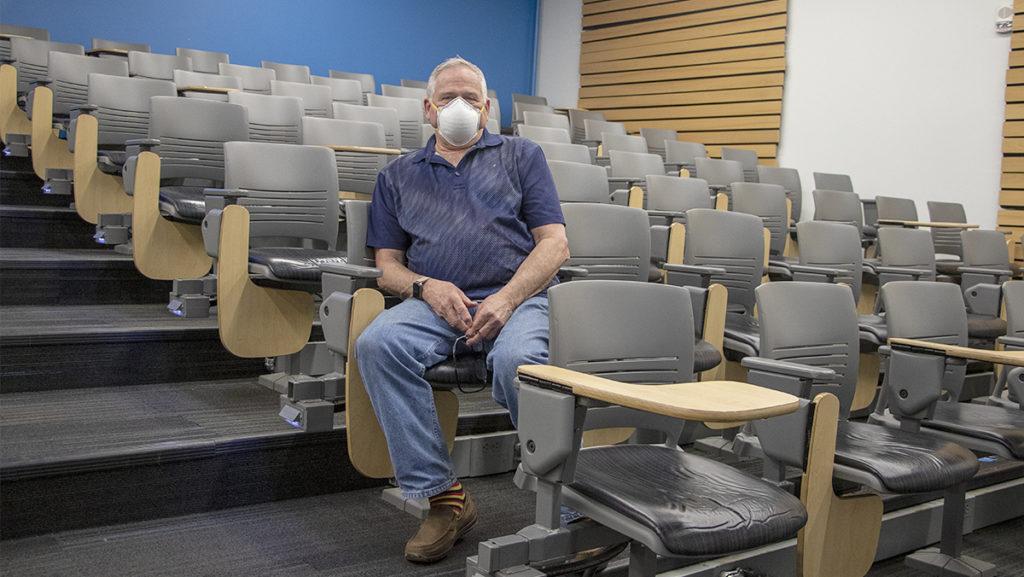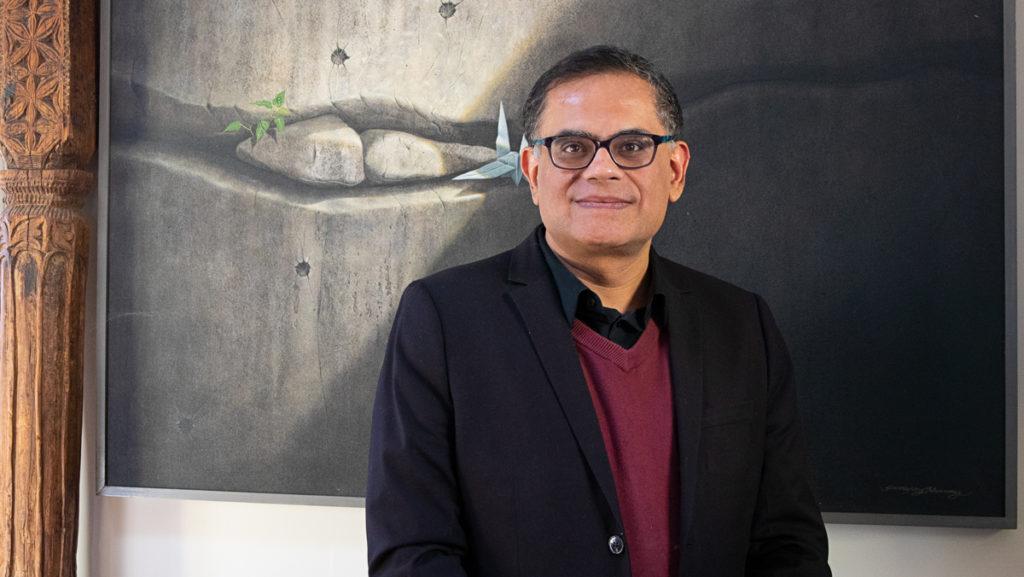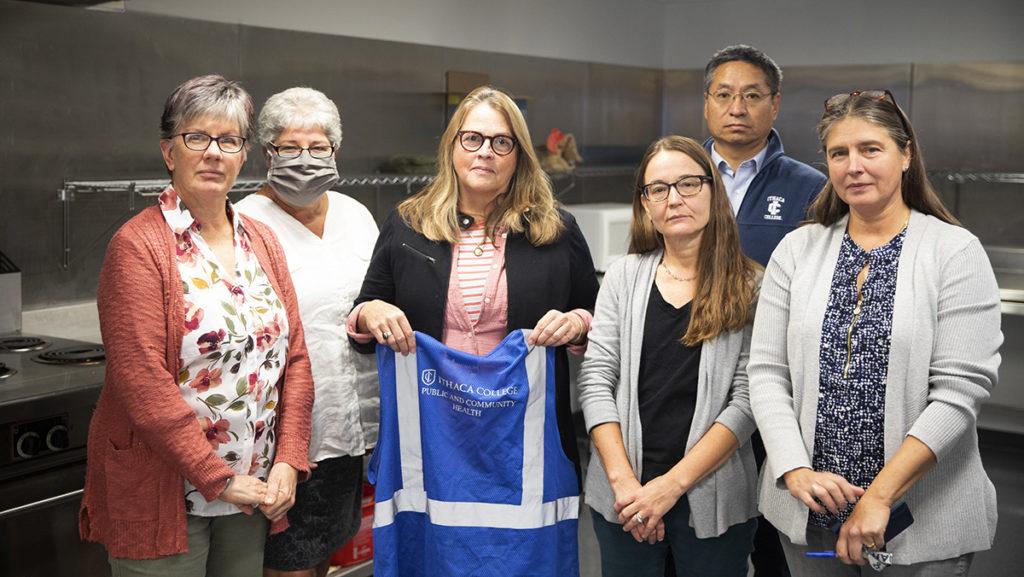Dear President Collado, Provost Cornish, and members of the Senior Leadership Team:
We write to you as members of the Executive Committee of Faculty Council, the leading governance body for the Ithaca College faculty, in order to relay the very serious concerns that we have heard from our colleagues—at two separate meetings the FCEC called during the week of October 12th, attended in each case by almost 300 faculty—in response to the news that the elimination of roughly 130 FTE faculty will be recommended by APPIC by December 31st, 2020. We wish to begin by making clear that we recognize the extraordinarily difficult position that you all, as members of the Senior Leadership Team, are in at this time, and the grief you no doubt have felt in response to the human suffering and job losses that many in our community have already endured and still others will endure in the months to come. We know that you are working with great dedication and thoughtfulness on behalf of IC and that it is your desire to work as collaboratively as possible with all members of our community. It is in that spirit of collaboration and mutual respect that we write you this letter.
As you of course are already fully aware, the news about the 130 FTEs has prompted much concern within the Ithaca College community; it has elicited unwelcome press in such prominent venues as The Chronicle of Higher Education and Inside Higher Ed; and it has garnered enormous amounts of attention on social media. It has also generated numerous questions from the IC faculty, which we hope to capture for you in what follows. The faculty well understands, of course, that Ithaca College is confronting a fiscal crisis, one that was intensified by COVID-19 but that predates it and is the consequence of numerous factors, including a steadily decreasing student body that has brought our student/faculty ratio to an unsustainable 10:1. We all recognize the need for the college to respond to these pressing realities. Nevertheless, our goal in this letter is to request that the Senior Leadership Team consider a more deliberative and measured response as an alternative to recommending the termination of roughly 20% of the faculty in a mere two months. We are requesting that the SLT operate not all at once but over time, making some decisions in the short term but delaying others until we can assess our fiscal and enrollment environments once COVID-19 is behind us. Doing so, we believe, will generate greater transparency, more informed decision-making, and far more confidence and trust on the part of the Ithaca College community—a community that includes not just faculty, staff, current students and their parents, but also our alumni, who are watching these events unfold very closely.
There is a widespread view among the faculty that the case for these extreme cuts at such an accelerated rate has not yet been clearly made, leading to a series of shared questions. Has the number 5000, which has been settled upon as the correct one for our student body going forward, been determined strategically or merely reactively? On what grounds do we conclude that 12:1 is the appropriate student-faculty ratio? Why have we decided to accept lower student and faculty numbers as an inevitability due to historically declining yields, when numerous institutions within our region have not suffered such low yields despite sharing the challenges of demographic shifts and, more recently, COVID-19? We recognize that institutions have very different profiles and potential student pools that can account for some of this, but still the overall picture seems to be graver for IC than for many of its competitors. Why is that so? We wonder too why we are taking such drastic actions in an anomalous year, when it is difficult to see the forest for the trees. Are we creating even greater problems for ourselves in the future, in light of the punishing representation we are receiving in the media? Most crucially, how will the proposed cuts solve our problem and what is the College’s plan to prevent us from being forced to make yet more cuts going forward? Your dedicated, hard-working and devoted faculty and staff—few of whom are immune to job security anxieties at this time—seek your clear and candid answers to these questions.
It is the view of many members of the faculty that, if the process of determining the appropriate faculty and staff size were to be spread out over 2-3 years, it would be easier to assess whether the current projected numbers (again, roughly 130 FTE when it comes to faculty) are warranted, while assessing the results of other measures. As an example, faculty have requested that we focus attention on our enrollment strategies and see whether we need to radically rethink our approach to recruitment and yield, better engaging faculty as ambassadors in that process. The same argument has been made about philanthropic giving; for years faculty have sought greater involvement and have argued that they might be especially well positioned to activate in potential alumni donors the emotional and intellectual attachment to IC that can generate gifts. Faculty have also called attention to the poor state of our website; a focus on improvements there could have an impact upon our yields.
While we recognize that the above suggestions would take time to operationalize, we suggest in the short term that the institution continue to offer retirement incentives and see what that generates in the next year or two, so as to somewhat mitigate the need to cut existing faculty. Faculty have also asked whether there will be administrative reductions in addition to faculty and staff eliminations. If the answer is yes, the SLT conceivably could begin with fewer faculty and staff reductions, coupled with retirement incentives, and see whether those measures and others we propose here bring us closer to our goal. After all, given Handbook rules, many of the faculty who would be eliminated under the current plan are very likely to be among our newest hires. These people arguably constitute our most vibrant teacher-scholars, and quite a few of them are also BIPOC faculty. These are the very colleagues we should be working hardest to retain. Other colleagues, such as NTEN and contingent faculty, are vulnerable not because they do not strengthen the institution but purely due to rank. If we eliminate these faculty, it is highly unlikely that—should circumstances improve—we will be able to gain them back again.
As members of the FCEC, we have had the privilege to participate in conversations and listen to presentations given by the highest leaders at this institution, ranging from our deans to the President. The Provost, in particular, has been extraordinarily generous with her time and has spoken with FCEC throughout this crisis with great candor and openness. We are grateful for that and, as a result of it, we think we can fairly say that we are not unrealistic. We know that the College’s fiscal crisis is all too real. Nevertheless, we share the concerns and ask the same questions that we are hearing from our colleagues. We believe deeply that a more gradual approach will greatly improve morale and benefit the College in the long-term. We do not mean that nothing should happen now; it is obvious that some cuts need to happen immediately. But the current timeline appears too compressed to allow for fully constructive and (where appropriate) collaborative decision-making, and many faculty members are asking whether such haste is clearly warranted by the financial picture the SLT is offering of the College at this time.
In advance of proceeding with the APP process according to the announced timeline, we hope that you will join in a discussion with the faculty so that we can engage together in meaningful, respectful dialogue to discuss the questions and proposed solutions that we have sought to offer in this letter. We are grateful to you for hearing our thoughts and concerns, and for your dedicated work on behalf of the College that we all love.
Sincerely,
The Faculty Council Executive Committee
Chris McNamara, Chair
Jason Freitag, Vice Chair
Claire Gleitman, Secretary
Diane Birr, Faculty Council Representative to APC
Chrissy Guest, Member At-Large
Raul Palma, Member At-Large














